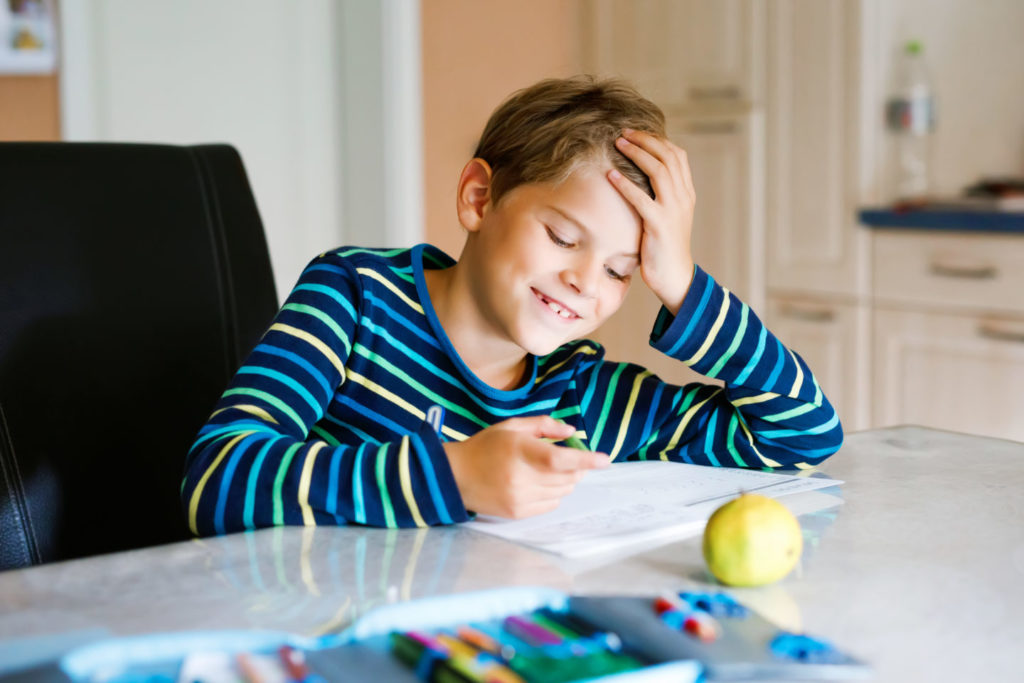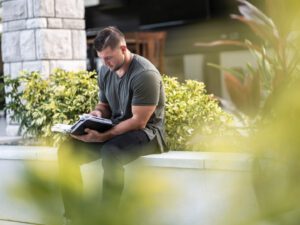Homeschooling sees growth among Catholic families nationwide
As a once reluctant homeschooler, Talina Lindsey readily identifies with parents who raise concerns about the long-term effects of this alternative educational model.
“I always thought…

As a once reluctant homeschooler, Talina Lindsey readily identifies with parents who raise concerns about the long-term effects of this alternative educational model.
“I always thought homeschooling was super weird. I always worried about those kids, especially socially,” Lindsey told The Pillar, a Catholic media project. “But the Lord told me that I needed to pull my son out of school, which was the school where I taught, so that was really hard. But I needed to homeschool him.”
The COVID-19 pandemic also provided a central role in her decision, when she had the time to watch her then 10-year-old son, Avelino, play in the back yard.
“The Lord showed me that the world was spinning really fast, and I was spinning right along with it, focused on career, money, and status. In that moment, He showed me my son, and He revealed to me that my number one vocation was to be a mother and wife.”
Lindsey isn’t alone. As homeschooling continues to grow nationwide, it’s finding a ready audience among Catholic families who see it as part of their vocation.
“These parents feel called to homeschool; they’re doing it out of a positive desire, not out of fear,” said Fr. Joe Martin, a priest of the Archdiocese of St. Louis who was homeschooled for 12 years. “They are getting together to do a co-op with different offerings, then they’re also praying and having retreats for the moms they are offering morning and evenings of reflections.
“These families do not have beef with the school. They just realized it doesn’t fit their family.”
A long history of Catholic homeschooling
Between 400,000 and 500,000 Catholic children are estimated to be homeschooled today, according to The Pillar, using data from the National Catholic Education Association, General Social Survey, and U.S. Census.
“The Pillar’s calculations indicate there is likely at least one Catholic child being homeschooled for every three in Catholic school — and they have an outside impact on priestly vocations, and thus the future of the Church,” writes Brendan Hodge.
From the early days of the homeschooling movement, families could explore Catholic options for their curriculum, including Our Lady of Victory, the Seton Home Study School, Kolbe Academy, and Mother of Divine Grace.
“Today there are many other distance schools, curriculum providers, and homeschool associations and co-ops supporting Catholic parents who teach their children at home,” Hodge writes, noting Catholics with homeschool experience have “an increasingly prominent place in (priestly) vocations.”
“The percentage of Catholic families who are homeschooling is now likely twice as high as it was in 2000, which means that if trends continue, by 2050, 20% to 30% of vocations will be coming from people who were homeschooled.”
Martin attributes these homeschoolers’ major emphasis on vocations to the nature of families who choose this educational option.
“There might be a little bit of a selection bias among homeschoolers because of the intentionality, sacrifice, and faith and trust in God that homeschooling requires,” he said.
“You’re already dealing with a special type of Catholic parent. If they have, for the right reasons and a positive desire to follow God, made the decision to homeschool, then you are dealing with parents who’ve received a lot of grace.”
One homeschool graduate, Elizabeth Miller, was homeschooled from kindergarten through high school. She praised her parents’ homeschooling choices, saying they prepared her for life at Benedictine College.
“Now that I’m in college and I’ve seen what public schools are like and what they are teaching, I’m grateful that I was homeschooled because I was able to learn things that I was more interested in and that were rooted in the faith,” she said. “I had a much more personal education because I had that one-on-one instruction with my mom and we were able to dive into subjects a lot deeper.”
‘A very strong Catholic community’
Homeschooling provided Joe Green, now a Benedictine College junior, with a deep spiritual foundation amid like-minded families.
“I loved being homeschooled,” he said of his childhood in Ponder, Texas. “There was a very strong Catholic community and a lot of homeschoolers in the area, so having that kind of support was nice.”
Green also credited home education for helping develop lasting family relationships.
“All my siblings were two years apart each, so we grew up pretty tight knit as we would work on school together,” Green said. “There’s definitely some great aspects of homeschooling – my parents really instilled the faith in us and were able to form us in a more intentional way than if I was sent off to school.”
When Green was in 6th grade, his parents sent him to a local Catholic school.
“It was a lot different,” he said. ”The only idea I had of a traditional school setting was from TV shows. There weren’t too many struggles. The hardest adjustment was getting used to the daily grind, because I couldn’t have those days where I just skipped school and did the fun stuff. So going to school day in, day out was kind of hard to adjust to.”
Another adjustment involved catechism classes, which he described as “more basic than what my mom was teaching us.”
“I would get in trouble with the teacher because she would hand us our homework and she’d be explaining the homework, and I would already have it all filled out, because it was like the same book that we used homeschooling.”
Green admits to making poor lifestyle choices when attending a public high school, which he attributes to the company surrounding him at the time.
“If I had the opportunity to go to a really solid Catholic school, I would have loved to have that opportunity because going to the public school, I fell in with the wrong crowd,” he said.
However, his arrival at Benedictine for football prompted him to return to his Catholic faith.
“Homeschooling really set a strong foundation for the rest of my life because I went astray a little bit in high school,” he said, “but coming to Benedictine, I could pick right back up where I was because I had that base.”



